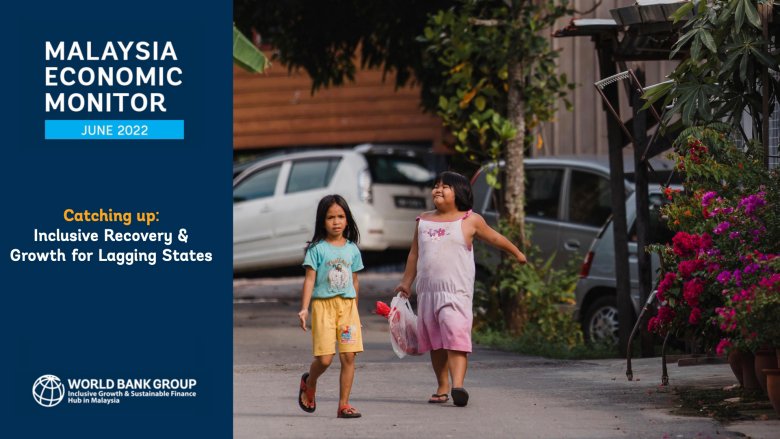KOTA KINABALU, 16 June – The effects of the pandemic and the subsequent closure of the economy over the past few years had been more devastating to regions at the lower end of development in the country. As such, there must be greater emphasis to uplift states lagging behind their more developed and industrialized peers, a new World Bank report reveals.
The report, “Catching Up: Inclusive Recovery & Growth for Lagging States”, points to states, namely Kedah, Perlis, Kelantan, Sabah, and Sarawak, with the lowest average income and highest incidences of poverty. Malaysia’s ongoing efforts to free up fiscal space would allow the government to channel more federal resources to localities and households in such areas.
“Developmental challenges of populations in lagging states have to be accounted for when national-level policies are formulated. This will also ease and ensure Malaysia’s ambition to reach high-income status in a way that is spatially inclusive,” said Ndiame Diop, World Bank Country Director for Brunei, Malaysia, Philippines, and Thailand.
“One of the game changers under the 12th Malaysia Plan, which was tabled in October last year, is to multiply the growth of less developed states and reduce the regional development gap. As such, priority will be given to Kedah, Kelantan, Perlis, Sabah, Sarawak, and Terengganu by allocating at least 50 percent of the government’s basic development expenditure, such as the construction of schools, hospitals, and roads,” said Dato’ Sri Mustapa Mohamed, Minister in the Prime Minister’s Department (Economy).
“Greater state-federal collaboration can strengthen relations and forge understanding to drive the recovery and development of the state and improve the livelihoods of Sabahans,” said Datuk Seri Haji Hajiji Haji Noor, Sabah Chief Minister in a special address during the launch of the report. “Sabah has received support through several government policies to spur social and economic development, including federal support for the construction of the Pan Borneo Highway, repairing and rebuilding schools in rural areas, and hardcore poverty eradication in 10 localities.”
To further expedite growth and close the development gap among Malaysia’s states, federal efforts to support economic development in lagging states will benefit from greater clarity in its overarching policy framework.
The report also suggests that immediate policy action ought to focus on poverty alleviation in these states by improving targeting of, and increasing and enabling access to, cash transfers. In the longer term, broadening access to quality education and skills training would raise the quality of human capital. Meanwhile, improving the business environment in these states by bridging access to national markets will create better-paying jobs for the population, subsequently raising living standards. This will, in turn, ensure faster economic growth in those states and make them parts of the engines of national growth, placing Malaysia on the right track in the country’s efforts to ensure inclusive recovery and growth.

